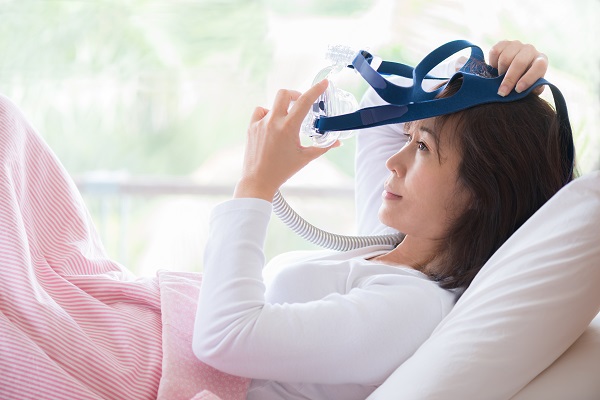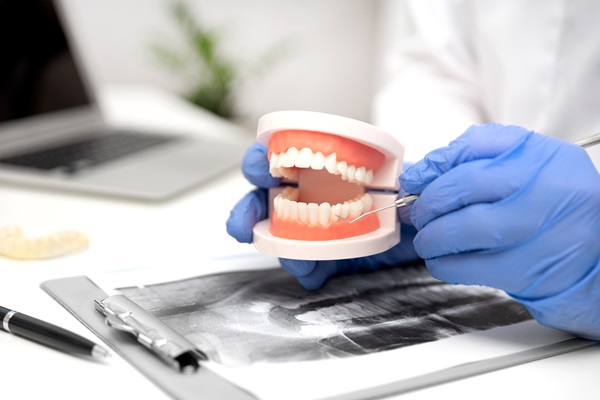How Does Sleep Apnea Affect the Brain?

According to the American Sleep Apnea Association, approximately 25 million Americans have some form of obstructive sleep apnea, which is a chronic disease that involves frequent pauses in a person's breathing during sleep. Most health warnings about this condition focus on how it can lead to high blood pressure, heart disease and diabetes, but apnea can also negatively impact brain function.
How sleep apnea affects the brain
People with apnea often experience symptoms such as daytime drowsiness, shortened attention span, moodiness, depression, anxiety and reduced short term memory recall. Research has shown that the disease may also have a long term impact on the brain.
Physical changes in the brain
Sleep apnea can change the shape of the brain over time. Because people with apnea stop breathing during sleep, the brain is temporarily deprived of oxygen, which can result in brain damage. A study conducted by the UCLA School of Nursing found decreased amounts of both gray and white matter in subjects with apnea when compared to similar subjects without it. The study also found changes in the levels of neurotransmitters that affect thinking and physical functions, such as blood pressure and perspiration. Seung Bong Hong of the Sungkyunkwan University School of Medicine in Seoul, South Korea, concluded that decreased sleep quality and brain damage could lead to poor memory, emotional problems and decreased cognitive functioning.
Memory loss and cognitive impairment
Research has shown that sleep apnea may make it more difficult for short-term memories to be stored as long-term memories. An important part of the long-term memory creation process occurs during sleep. Because apnea disrupts sleep, it also disrupts this function, which can lead to memory loss. A study by New York University researchers found that subjects with sleep apnea may experience mild cognitive impairment as much as 10 years earlier than subjects without sleep disorders. The study also indicated that the disease might lead to earlier onset of Alzheimer's disease in some people with the condition.
Dental sleep apnea treatment
Thankfully, there are a number of dental sleep apnea oral appliance treatment options to address the disorder. One common treatment option is the use of oral appliances, which includes mandibular devices and tongue-retaining appliances, both of which help keep the airway open and unobstructed throughout the night.
Additionally, CPAP machines may be used, under the supervision of a dentist and doctor. CPAP machines have more moving parts than oral appliances, however, the results tend to be worth it. In some scenarios, it may be recommended to combine CPAP machines with oral appliances to appropriately treat the sleep apnea.
Whether an oral appliance or CPAP machine is used, individuals suffering from sleep apnea will experience a better night's rest and a healthier brain.
Conclusion
Untreated sleep apnea can negatively affect both the physical and mental health of an individual. Snoring, choking sounds while asleep and daytime drowsiness may be signs of undiagnosed sleep apnea. Because treatment can reverse brain damage caused by the lack of airflow and prevent further damage, it is important for people experiencing the symptoms of sleep apnea to consult a doctor for testing and diagnosis.
Request an appointment here: https://www.smilesforlifedentalgroup.com or call Smiles for Life Dental Group at (408) 500-0819 for an appointment in our Santa Clara office.
Check out what others are saying about our dental services on Yelp: Sleep Apnea in Santa Clara, CA.
Recent Posts
Oral appliances are usually recommended as an alternative to CPAP for sleep apnea treatment. These devices are custom made for patients by the general dentist using the mouth’s impressions. Oral appliances are not only effective for sleep apnea, but they are also sometimes good for stopping snoring.Most oral devices work by shifting the jaw forward.…
Individuals who suffer from sleep apnea may experience troublesome symptoms that prevent them from getting a good night’s rest. Patients with this type of sleep disorder stop breathing periodically throughout the night. This is either a result of the relaxation of the muscles in the throat (obstructive sleep apnea) or a lapse in signals from…
Sleep apnea is a common disorder that can leave you feeling tired and sleepy during the day. The condition leads to breathing coming to a stop during sleep, forcing your brain to wake up to restore breathing momentarily. People with the condition can have hundreds of these interruptions during sleep.Obstructive sleep apnea is caused by…
Obstructive sleep apnea is a disorder many people suffer from. Essentially, it is when breathing stops while sleeping. While this is considered a serious medical condition, the consequences of having sleep apnea usually do not pose a health risk. However, sometimes it can be dangerous, so you should always speak to your doctor upon noticing…


